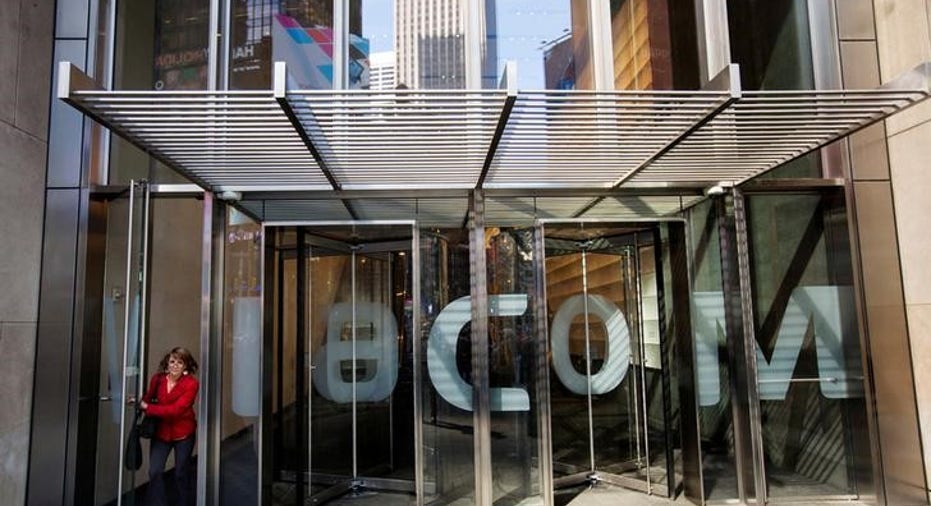Viacom CEO considers costly Scripps Networks acquisition

Since taking over as Viacom Inc.'s chief executive last year with the blessing of powerful shareholder Shari Redstone, Bob Bakish has been working to win over Wall Street with moves meant to stabilize the embattled entertainment giant.
He has sharpened the company's focus on six key cable channels, including MTV and Nickelodeon, brought in new management at the Paramount film studio, given the green light to spend more on talent, and unloaded the company's stake in pay-television channel Epix for about $600 million.
Now Mr. Bakish is contemplating what would be his boldest bet yet: an acquisition of rival media outfit Scripps Networks Interactive, operator of HGTV and Food Network. People familiar with the situation say Viacom is in talks to acquire the company, as is Discovery Communications Inc.
Members of the Scripps family are expected to meet Tuesday to discuss a potential sale, according to people familiar with the matter. The family members collectively control a 91.8% voting stake in the company and are expected to make a decision soon.
In a sign that investors are optimistic about the odds of a deal, Scripps shares have risen by about 20% since The Wall Street Journal first reported last week that the company was in play.
At first glance the companies would be odd partners. The Scripps channels are lifestyle brands primarily aimed at families or people looking to upgrade their homes and kitchens. Viacom's core brands target teens and young adults, often with reality shows.
However, such a deal could potentially strengthen Viacom's hand in channel-carriage negotiations with cable companies and emerging streaming TV players.
The Scripps networks have been solid performers. In the second quarter, domestic ad revenue for Scripps was up 4% while Viacom's was off by 2%, according to MoffettNathanson, a media analyst firm. Subscriber fees grew by 6% in the second quarter for Scripps, compared with 1.9% for Viacom, MoffettNathanson said.
Together, the companies would account for about 18% of TV ratings, on par with conglomerates like Walt Disney Co. and Comcast's NBCUniversal, according to RBC Capital Markets.
For Viacom, the question is how financially feasible such a takeover would be. Scripps had an $8.8 billion market capitalization before the Journal reported on July 18 that the company was in talks with Discovery. Reuters later reported that Viacom had talks with Scripps. The company is now valued at $10.4 billion.
Viacom had $12.2 billion in debt as of March 31 and is clinging to the lowest level of investment-grade credit ratings, according to Moody's Investors Service. That means a deal would likely need to be financed substantially with stock, rather than cash, so as not to further burden the balance sheet, said Moody's debt analyst Neil Begley.
"I don't think that they have a lot of financial capacity on their balance sheet," Mr. Begley said.
But Viacom's equity isn't as valuable as it once was. The shares trade at about 12 times earnings, compared with Scripps at about 18 times. Viacom has a market capitalization of $14.5 billion.
One benefit would be that Viacom could boost revenue by helping Scripps' channels gain greater distribution globally, Mr. Begley said.
The additional free cash flow from Scripps could also be used to help Viacom reduce its leverage, Barclays equity analyst Kannan Venkateshwar wrote in a note last week, adding that a deal would still be "a confusing step in the wrong direction."
For Discovery, an acquisition of Scripps could help the company offer a compelling package of popular, nonfiction channels for "skinny" online TV bundles, and a good mix of male and female-skewing audiences, among other benefits.
Investors have been on a roller coaster with Viacom lately. When Mr. Bakish was installed as permanent CEO in December, following a power struggle that led to the overhaul of management and the board, shares began to rebound from the mid-$30 range and reached about $47 in late March.
But persistent Wall Street concerns about the TV ad market and Viacom's place in the cable TV bundle have helped push the stock down to $35, slightly above where they were when Mr. Bakish took over. Over three years, Viacom's class B shares are down more than 50%.
Mr. Bakish is still dealing with baggage he inherited, including a weak slate of movies at Paramount and several cable channels enduring rating declines.
He landed the job of chief executive after winning the confidence of Ms. Redstone, president of Viacom's controlling shareholder National Amusements Inc. and daughter of ailing mogul Sumner Redstone.
Mr. Bakish hasn't been as tightfisted with the creative community as the company was perceived to be under the previous regime. In June, Paramount tapped Brian Robbins, a successful producer of content targeting teens and young adults to head the new production division Paramount Players.
In another big deal, Viacom struck a partnership with successful movie and television producer Tyler Perry to produce content for BET and other networks as well as getting a first look at any new feature concepts.
Sarah Rabil and Dana Cimilluca contributed to this article
Write to Joe Flint at joe.flint@wsj.com
(END) Dow Jones Newswires
July 25, 2017 13:27 ET (17:27 GMT)



















